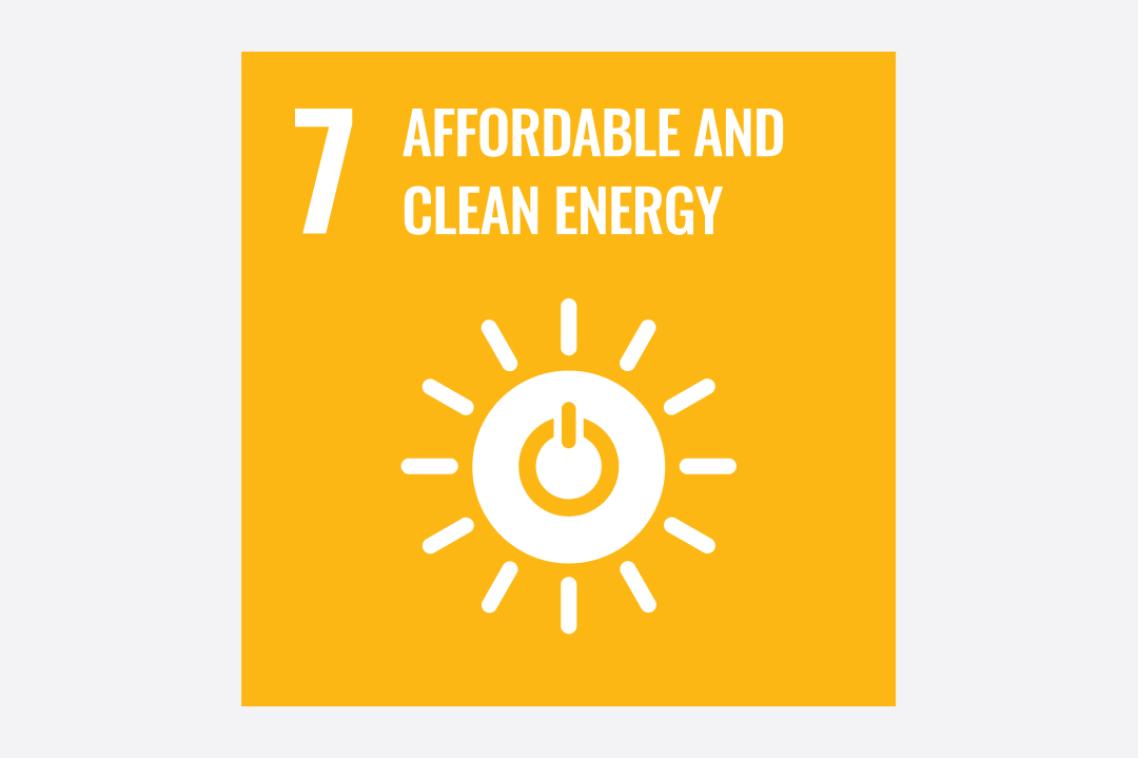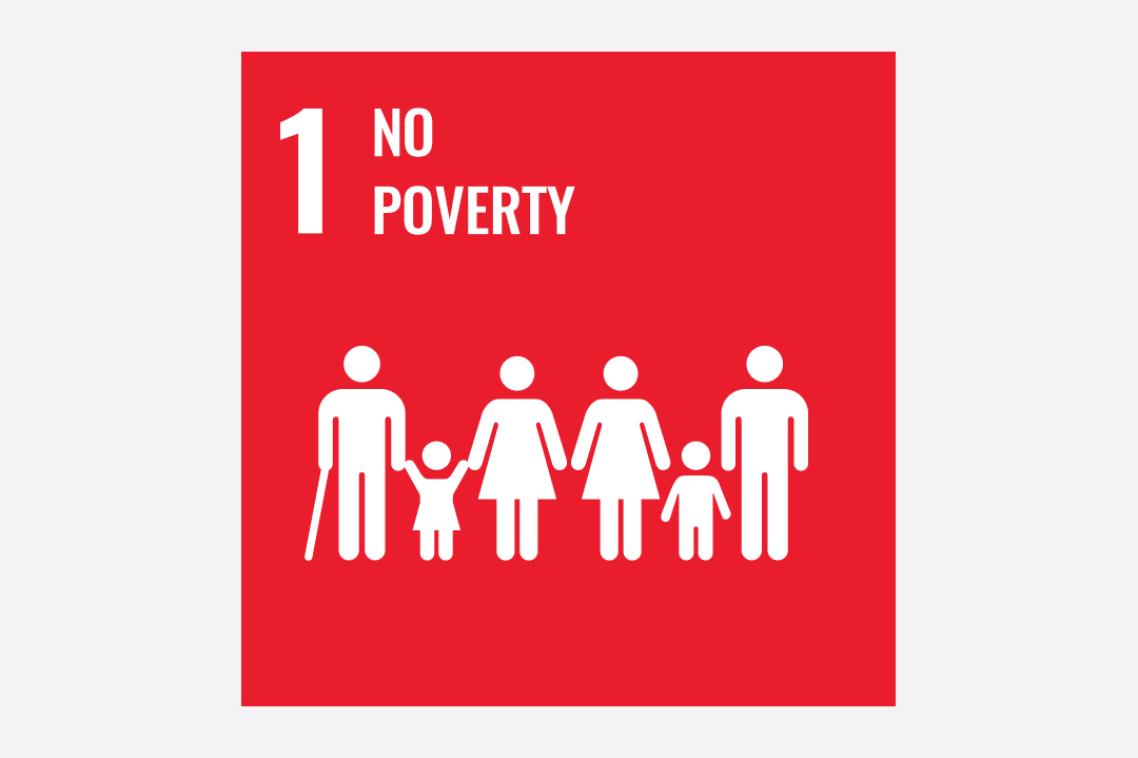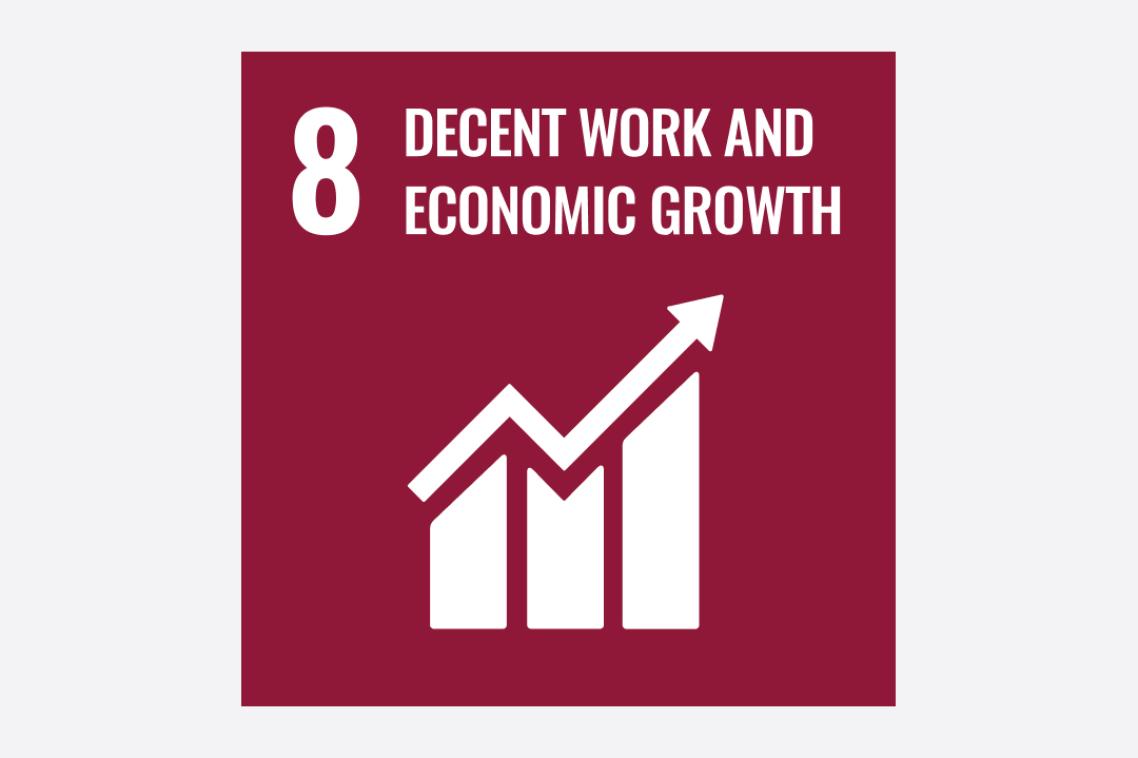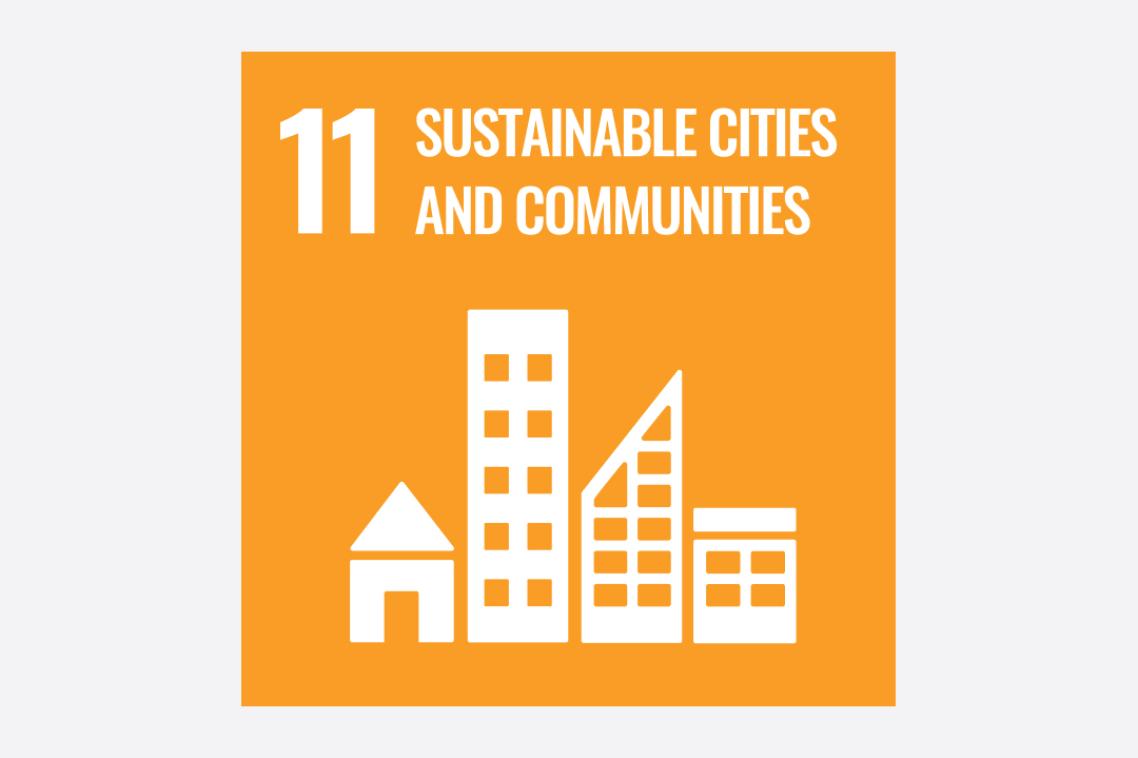SDG 7 – Affordable and clean energy

2024 progress
The University of Queensland (UQ) plays a pivotal role in advancing SDG 7: Affordable and clean energy through our commitment to clean energy research, sustainable operations and community engagement.
UQ strives to minimise energy consumption and promote efficient energy awareness by integrating renewable energy into our operations, with infrastructure such as solar facilities and electric vehicle charging stations. We also integrate energy-efficient design principles into all new buildings and renovations, guided by our comprehensive design standards.
Having access to state-of-the-art research facilities is allowing UQ’s solar experts to make exciting new discoveries about clean energy generation and carbon emissions reduction. UQ’s research excellence is reflected in innovations such as carbon-negative nanogenerators, lead-free perovskite solar cells, and next-generation battery technologies. These breakthroughs contribute to global efforts to reduce greenhouse gas emissions and improve energy efficiency. UQ also supports low-carbon innovation through start-ups like SolarisAI and ARTEH, which develop AI-driven solar diagnostics and net-zero transition services.
Community outreach is central to UQ’s approach, with programs supporting energy transitions in regional Queensland and Timor-Leste. Educational initiatives, including the Sustainable Energy MicroMasters® and public lectures, empower individuals and industries with knowledge about clean energy practices. Collaborative projects like Net Zero Australia and the Australian Research Council Centre of Excellence for Green Electrochemical Transformation of Carbon Dioxide (GETCO2) further demonstrate UQ’s leadership in shaping energy policy and technology.
Through integrated efforts in research, education, and engagement, UQ contributes meaningfully to a sustainable energy future aligned with SDG 7.
Read our SDG 7 2024 report (PDF, 238.35 KB)
See how we make a difference across key areas:
University measures toward affordable and clean energy
UQ is a large energy consumer. Electricity accounts for approximately 92.4% of our overall energy consumption and represents 97.8% of our overall Scope 1 and 2 emissions. Energy is the second biggest operating expense for UQ. UQ is adopting a comprehensive approach to enhancing energy efficiency and reducing energy consumption across new construction projects, existing buildings, and all refurbishment and upgrade initiatives.
Energy efficient building
UQ is committed to enhancing energy efficiency through a range of strategic initiatives. UQ’s Design Standards (PDF, 1.16MB)
The standards also promote advanced design strategies, including Demand Controlled Ventilation (DCV) in teaching spaces with high outside air requirements, and the use of efficient heat recovery systems like heat exchangers and run-around coils. For heating, the preference is for heat pumps and heat recovery systems over electric duct heaters, due to their superior efficiency.
To minimise environmental impact, UQ specifies the use of low Global Warming Potential (GWP), low ozone depletion potential (ODP) refrigerants such as hydrofluoroolefins (HFOs). Water conservation is also a priority, with cooling tower operations monitored to maintain higher cycles of concentration (CoC), reducing water usage.
UQ runs an active asset replacement program, upgrading end of life chillers and cooling towers with more efficient models. Additionally, energy audits are conducted across various buildings to identify and implement efficiency improvements. These efforts are supported by advanced metering and building management systems (BMS) to ensure optimal control and performance.
UQ is currently delivering an LED lighting upgrade program to replace legacy fittings with new high efficiency LED fittings with smart controls. This program will continue to expand across all UQ sites. Through fitting replacement and new controls systems energy savings of up to 50% are expected for the lighting loads across UQ.
The targets and requirements articulated in the UQ Design Standards have been derived from several different sustainability initiatives, rating programs and the National Construction Code (NCC) standards. Sustainability initiatives are to be embedded holistically into all projects through good design practice.
Reducing energy consumption and wastage
UQ is committed to reducing its energy consumption through a number of ongoing projects and initiatives, including meter rooftop solar and behind-the-meter battery installation. Additionally, UQ is reducing carbon emissions by:
- improving efficient use of energy
- enabling extensive and comprehensive metering with detailed, live energy data
- reporting of detailed energy utilisation through the National Greenhouse and Energy Reporting (NGER)
- implementing targeted energy reduction initiatives.
Low carbon energy use – case study
In 2024, UQ embarked on a building audit program to identify energy saving opportunities. The first building's audit identified potential savings of 3% through standardisation and optimisation of cooling and heating setpoints and alignment of automation time scheduling on HVAC assets. UQ plans to further roll out an energy saving program in 2025.
UQ also undertook a major chiller replacement in the Queensland Bioscience Precinct complex. The new chillers are substantially more energy efficient and are forecast to save approximately 800 MWh per annum or 0.6% of our total usage.
Energy and the community
Local community outreach for energy efficiency
In 2024, UQ supported Queensland communities in developing practical strategies to reduce carbon emissions and improve environmental sustainability. UQ expert guidance, data tools, and hosted workshops focused on areas such as transport, agriculture and waste reduction. Activities included community garden sessions, water conservation education and urban beekeeping events, helping residents adopt sustainable practices in daily life. These efforts were part of UQ’s broader commitment to environmental equity and regional collaboration. By combining academic research with hands-on engagement, UQ empowered local groups to take meaningful climate action and build resilience against environmental challenges.
In addition, a range of collaborative research projects provided direct outreach to communities in support of renewable energy sources and to reduce environmental impacts.
How we are achieving this
Policy lessons for just energy transitions
In 2024, researchers from UQ’s Centre for Social Responsibility in Mining (CSRM) published the findings of research that explored the application of learnings from Australia’s automotive industry closures for the country’s coal-fired power transition. Drawing on expert consultations, and applying just transitions and transition management thinking, the publication, titled 'Just transition out of coal-fired power: Policy lessons from Australia's automotive sector closure' identifies 4 key insights from the auto sector closure experience. These offer compelling pointers to guide socio-economic transformations in frontline regions that are likely to face challenging, often deeply personal, impacts resulting from the closure of coal-fired power stations over the coming decades.
Energy as a service for improved food production and security in Timor-Leste
In 2024, researchers from the UQ School of Chemical Engineering's Energy Poverty Research Group continued their engagement with energy stakeholders and local communities in Timor-Leste, where high levels of electrification are accompanied by low levels of development. The research team interviewed stakeholders to explore the concept of energy as a service that could improve agricultural output and food security.
Resources supporting transition of remote communities to renewable energy generation
UQ's sustainable energy program enhanced its collaboration with Ergon Energy, the Queensland Government's electricity distributor in remote and regional Queensland, by developing authentic real-world case studies for students. The resulting assessment pieces in 2 courses produced community engagement plans and detailed investment decision-making reports, focused on the transition of remote communities from diesel to more renewable energy generation. These outputs were shared with Ergon Energy in 2024 to assist with the development and implementation of transition plans.
Sustainability of mega events – energy and carbon management of the Brisbane 2032 Games
UQ is actively involved in the sustainability of mega events such as the Olympic and Paralympic Games, with a particular focus on energy and carbon management of the Brisbane 2032 Games. UQ researchers have been active in collaborations with the Queensland Government's Brisbane 2032 Organising Committee, the Lucinda Alliance (a private sector think tank organisation, with many UQ alumni) and the University of Lausanne, Switzerland. Outputs have included an article in The Conversation in 2024 demonstrating thought leadership on the sustainability of mega events.
Sustainable Energy MicroMasters® and Master of Sustainable Energy (Management)
UQ offers the Sustainable Energy MicroMasters® and the Master of Sustainable Energy (Management) programs, which are designed not only for students but also for professionals and community members interested in clean energy. These programs provide foundational knowledge in energy systems, climate change mitigation, and responsible energy management. The MicroMasters® is available online, making it accessible to local community members who want to learn about energy efficiency and sustainability without enrolling full-time. The programs include industry engagement and real-world projects, helping participants apply their learning to local energy challenges.
Energy research engagement and public lectures
UQ’s energy research centres, including the Dow Centre for Sustainable Engineering Innovation, host public lectures and community engagement sessions focused on energy efficiency technologies and policy. These events bring together researchers, industry experts and local residents to discuss innovations in clean energy, such as battery storage, smart grids and low-carbon technologies. Showcasing energy research at public forums and open days helps demystify complex energy topics and encourages community participation in energy transition.
Energy efficiency services for industry
Nanogenerator for sustainable power
Researchers from UQ’s Dow Centre for Sustainable Engineering Innovation developed a ground-breaking nanogenerator that absorbs carbon dioxide (CO2) and turns it into electricity. The technology goes further than being carbon neutral as it consumes CO2 as it generates energy. Following the success of the laboratory tests, there are 2 potential applications for the nanogenerator in the future – making a slightly bigger device that is portable to generate electricity to power a mobile phone or a laptop computer using CO2 from the atmosphere, and the second on a much larger scale, would integrate the technology with an industrial CO2 capture process to harvest electricity. This innovation, published in Nature Communications, could revolutionise clean energy production and transform how CO2 is viewed – from a problem to a valuable resource for sustainable power generation.
Battery Innovation at AIBN
Researchers at UQ’s Australian Institute for Bioengineering and Nanotechnology (AIBN) are pioneering advanced battery technologies to support a cleaner, net-zero future. Their work includes redox flow batteries for long-duration energy storage, next-generation lithium-ion systems and innovative approaches like screen-printed rechargeable inks. A standout project repurposes harmful PFAS chemicals – captured from water – into high-performance battery materials. These efforts aim to create safer, more efficient, and environmentally friendly batteries, positioning Queensland as a leader in energy innovation. Collaborations with industry and government are helping scale these technologies for real-world impact and sustainable energy solutions.
Industry Laureate to drive battery production
In 2024, Professor Lianzhou Wang, a senior group leader at the Australian Institute of Bioengineering and Nanotechnology, with appointments in the School of Chemical Engineering secured $3.6 million of funding as part of an Australian Research Council Industry Laureate Fellowship to help position Australia as a leading supplier of superior batteries for electric vehicles. The research, undertaken in collaboration with Pure Battery Technologies and Lithium Australia, allows design of new robust single-crystal microstructure to overcome the challenges currently hindering state-of-the-art lithium metal oxide cathode materials. The research hopes to support local industry partners to move up the battery value chain and position Australia as the global leading battery market supplier while also reducing environmental impact from battery waste.
Policy development for clean energy technology
ARC Centre of Excellence for Green Electrochemical Transformation of Carbon Dioxide (GETCO2)
Officially launched in 2024 and led by UQ, the Australian Research Council funded Centre of Excellence for Green Electrochemical Transformation of Carbon Dioxide (GETCO2) aims to efficiently convert carbon dioxide into valuable products, such as chemical and fuels. The Centre will catalyse a green manufacturing and export revolution for Australia while paving the smartest and cleanest path to Net Zero. In 2024, GETCO2 launched flagship research programs targeting multicarbon and organonitrogen compounds, hosted its first retreat, and formed international partnerships, including with Japan’s RCAST. GETCO2’s vision is to position Australia as a global leader in carbon dioxide transformation, and generate long-term economic, social and environmental benefits nationally and internationally.
Assistance to low-carbon innovation
Solaris-AI
UQ start-up SolarisAI introduced machine learning technology to enhance the efficiency of solar farms. The system uses AI to detect faulty or underperforming panels in real-time, reducing the need for additional hardware and cutting maintenance costs. By quickly identifying issues, SolarisAI improves solar farm performance, boosting revenue and reducing operational losses. Currently being tested at solar farms in Queensland, this innovation has the potential to provide communities with a more reliable, cost-effective clean energy supply, while also reducing environmental impact and supporting the growth of renewable energy.
ARTEH (Assessment through Research and Technology to serve the Environment and Humanity)
ARTEH was selected for UQ’s Ventures ilab Accelerator Program in 2021, and since then the startup team secured support and partnerships with UQ and several other organisations. ARTEH offers clients several services to facilitate a journey to net-zero carbon. These services include data collection, emission calculations, science-based target development and automated reports. Arteh Pty Ltd was a 2024 recipient of the Queensland Government’s Advance Queensland Ignite Ideas Fund, which aims to commercialise highly innovative and new products or services that are at minimum viable product (MVP) stage or beyond.
Case study: UQ Energy Transition Network
The UQ Energy Transition Network is a multidisciplinary initiative by UQ that brings together expertise across engineering, science, health, social sciences, economics and policy to address the complex challenges of global energy and resource transitions.
The network’s research spans several focus areas, including transition pathways, people and communities, policy and markets, resources, technologies, and systems and supply to deliver actionable outcomes. In 2024, UQ advanced several impactful projects, including:
- Industry 4.0 Energy TESTLAB, a digital twin of the electricity network for system analysis and cybersecurity
- a collaboration with Redback Technologies to develop a smart energy monitoring platform for real-time energy control
- ARENA-funded Project SHIELD, which supports energy distributors in managing behind-the-meter assets.
In 2024, the network played a key role in the UN Thirteenth International Forum on Energy for Sustainable Development in Bangkok, co-hosting a session on Just Transition experiences in Thailand and Australia. This session, held in partnership with Chulalongkorn University, featured industry, government and academic experts from Australia, Thailand and China, and explored the social, economic and technical dimensions of transitioning energy systems. UQ also contributed to sessions on clean cooking and post-mining transitions, reflecting its broad engagement in sustainable development.
A tech start-up from UQ, SolarisAI, is working on efficiencies in the renewable energy sector by detecting faults in solar farm panels. The system uses machine learning algorithms to analyse data and detect faulty and underperforming solar panels, and to recommend targeted maintenance. A critical improvement to management of remote and urban power systems where local technical expertise is often limited.
With the accelerated adoption of electric vehicles across the regions, UQ researchers have outlined 5 key steps needed to speed up Australia’s transition to electric vehicles (EVs), and by extension inform policy development of other countries. The 5 measures include:
- improving charging infrastructure
- enabling EVs to supply energy back to the grid
- creating local supply chains for EV batteries and parts
- upskilling an EV sector workforce
- replacing fuel excise revenue through appropriate usage charges.
These initiatives are supported by cutting-edge facilities and data analytics capabilities, enabling UQ to inform policy, support industry innovation, educate the future energy workforce, and build capability and capacity across the Asia-Pacific region. The network exemplifies UQ’s commitment to shaping a sustainable, inclusive, and technologically advanced energy future.
Explore our progress
Read more about how we're making progress toward other Sustainability Development Goals.





